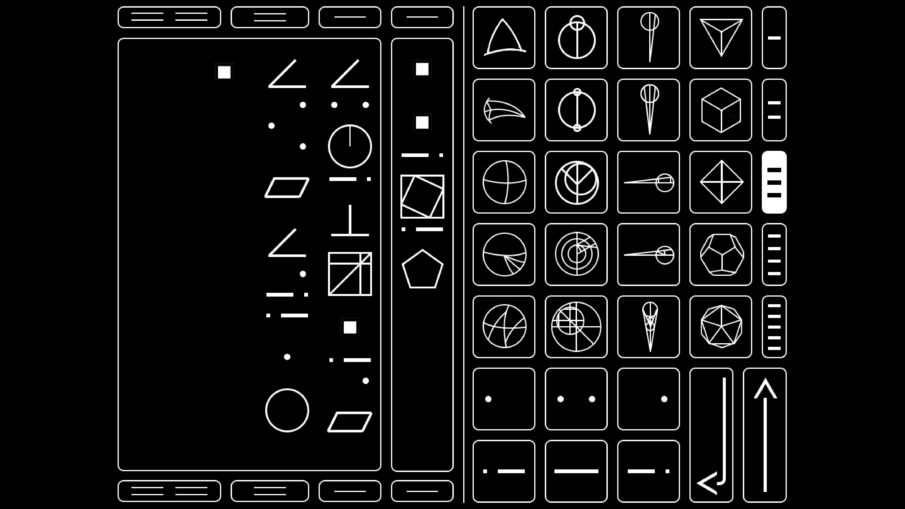Arrival appears to be the hot new business at the box office. Being industrial-grade Parentcore, I’ll get to it when I can — presumably just before heat death ruins home-streaming — but have it on good authority that Denis Villeneuve’s film is the new Contact, stripped of cheese. Alright, alright, alright.
In the spirit of high-brow science-fiction, I sought out the recent one-man effort, Sethian. It tells the tale of a lone, future-flung archaeologist who finds themselves in an alien ghost town. The eponymous city has remained in perfect condition due to automated maintenance, but the inhabitants have long since vanished. Using one of Sethian’s terminals and a delightfully anachronistic moleskine, the archaeologist must parse a dead language via back-and-forth with the resident AI.
This usually isn’t my type of game, but there’s something very arresting in Sethian’s minimalism. The piecemeal illumination of this vanished people feels genuinely alien, their hieroglyphics evoking images of Giraudian architecture or a hyper-Petra. Simple use of lines and circles advance the idea of a space-faring high culture, with grammar more than just re-purposed or scrambled English. Players learn how to plot the sequence of characters and punctuation in order to ask increasingly complex questions, each answer providing another stepping stone to prod their host for more.
It’s elegant, but if this brand of logic puzzle doesn’t appeal, there’s little point in picking it up to dab character sets together. Sethian is not an example of classic adventure game inventory jamming. You won’t get anywhere without using the proper syntax. It certainly separates the wheat from the chaff. As uncompromising as that is, the upswing in complexity is never a leap, though a hint or two would have helped yours truly.
But that’s the vision of Sethian. I kept thinking back to Pohl’s Heechee, another enigmatic race of long-since-goners. Left with nothing but their detritus to fossick through and a window through which to see the unseen. Sethian joins an array of purpose-built low-fi science fiction games — Duskers and Capsule, the inbound Objects in Space — where so much is done with so little.
Sethian capitalises on a sharp, singular conceit and the breadth of an empire germinates in the imagination from scant, obscure detail. One of 2016’s more interesting achievements. David Morse sold separately.



That’s received a prime spot at the top of my wishlist since it showed up on steam, definitely in love with Duskers and Capsule so really I should just pull the trigger on it and play it eventually.
Minimal science fiction gaming is, in the words of Jacobim Mugatu, so hot right now.